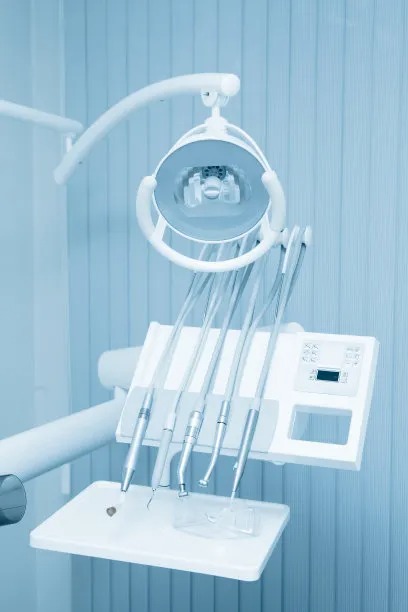Summary: Ensuring successful dental fillings and maintaining optimal oral health post-treatment is integral for long-term dental well-being. This article outlines essential precautions that patients must take, focusing on four main areas: managing discomfort and recovery, proper dental hygiene practices, dietary considerations, and the importance of regular dental check-ups. Each section provides insights that empower patients to take charge of their oral health, emphasizing the significance of these precautions in preventing complications and promoting the longevity of dental treatments.
1. Managing Discomfort and Recovery Period

After receiving dental fillings, it is common to experience discomfort or sensitivity in the affected area. Understanding how to manage this discomfort effectively is crucial for a smoother recovery. Over-the-counter pain relievers, as advised by your dentist, can alleviate pain and should be taken as prescribed. This proactive approach helps prevent undue stress on the teeth and gums during the healing process.
Additionally, during the first few days post-treatment, it is advisable to avoid touching the filling with your tongue or fingers. This precaution prevents irritation and gives the filling time to set properly. Patients should also be mindful of swelling, which can sometimes occur, and apply a cold compress to the affected area for relief.
Moreover, if the sensitivity persists beyond a week or if severe pain develops, contacting your dentist is paramount. Timely communication can help address potential issues before they escalate, ensuring that the filling remains intact and functional.
2. Proper Dental Hygiene Practices
Maintaining optimal oral hygiene is crucial following dental fillings. Patients should continue brushing their teeth at least twice a day using a soft-bristled toothbrush and fluoride toothpaste. Special care should be taken around the filled area to ensure no food particles are trapped, which could lead to decay or irritation.
Dental floss plays an essential role in maintaining gum health and preventing plaque buildup. Patients should use waxed dental floss to avoid pulling on the filling while cleaning between teeth. In addition, consider using an antimicrobial mouthwash to further enhance cleanliness and combat bacteria.
It is advisable to refrain from flossing the newly filled tooth for the first 24 hours to allow the filling to harden properly. However, after this period, it becomes essential to integrate the filled tooth into your daily hygiene routine. A consistent and attentive dental care regimen significantly contributes to the longevity of dental fillings.
3. Dietary Considerations After Treatment
Your diet after getting dental fillings can significantly affect the healing process and the longevity of your treatment. To promote optimal oral health, it is recommended to avoid hard, crunchy, or sticky foods, as these can put undue pressure on the fillings. Foods like nuts, popcorn, and hard candies should be minimized during the initial recovery phase.
Soft foods, such as yogurt, mashed potatoes, and soups, are ideal during this recovery period. Additionally, chewing on the opposite side of the mouth where the filling is located can help prevent discomfort and unnecessary strain on the filling.
It is also important to steer clear of extremely hot or cold beverages initially, as sensitivity may be heightened post-treatment. Once the recovery is well underway, patients can gradually reintroduce regular dietary habits while remaining observant of any discomfort that may arise.
4. Importance of Regular Dental Check-ups
Regular dental check-ups are essential to ensure the success of dental fillings and overall oral health. Patients should schedule follow-up appointments with their dentist within six months of getting fillings, as recommended. These visits allow the dentist to assess the condition of the fillings and make any necessary adjustments or repairs.
Moreover, routine check-ups provide an opportunity for professional cleanings that help remove plaque and tartar build-up, which is essential for preventing decay around fillings. These appointments also allow for early detection of any potential issues, leading to timely interventions.
In addition to professional care, maintaining good communication with your dentist about your oral health and at-home care can help foster a partnership that promotes long-term dental success. Regular visits create an understanding of your unique dental needs, enabling tailored advice and support.
Summary:
In conclusion, ensuring the success of dental fillings requires careful attention to post-treatment practices, including managing discomfort, committing to proper dental hygiene, being mindful of dietary choices, and attending routine dental check-ups. By taking these essential precautions, patients can maintain optimal oral health and prolong the life of their fillings.
This article is compiled by Vickong Dental and the content is for reference only.
Vickong Dental
Vickong Dental is a large medical group established in Hong Kong in 2008 by professors from well-known medical universities in Guangdong and Hong Kong, as well as medical doctors from key national '985' universities (including Master's supervisors and senior professors). The chain of branches brings together expert dentists with PhDs and Master's degrees from Hong Kong and Mainland China, committed to providing high-quality dental treatment.
"Vickong Dental Practices the University Motto of 'Healing and Serving Society,' with a Stable Operation for Sixteen Years. It Has Been honored with Hong Kong Enterprise Leaders's Choice,' and is a Global Trusted Implant Center for the Nobel Implant System. Recommended by Hong Kong Metro Broadcast and Guangdong Television, it Serves Customers from Over Thirty Countries and Regions, Gaining the Trust and Favor of Citizens from the Guangdong-Hong Kong-Macau Greater Bay Area and Surrounding Cities.

Thousands of customers' unanimous praise
The most recognized and highly recommended dental service by customers in the Guangdong-Hong Kong-Macau Greater Bay Area
We Ensure You Receive Detailed Care and Attention Here
Hong Kong standards, Shenzhen prices, Your Trusted English-speaking dentists

Vickong Dental Medical-Grade Instrument Disinfection Process
Vickong Dental Medical-Grade Instrument Disinfection Process

Vickong Dental Chain: A Warm and Comfortable Environment for Treatment






Appointment Hours

Q&A
Why choose Vickong Dental?
Vickong Dental practices the university motto 「Medicine to Benefit Society」, with each branch bringing together highly qualified dentists with doctoral and master’s degrees from Hong Kong and the Mainland, and has maintained seventeen years of steady operation。Recipient of 「2024 Hong Kong Enterprise Leaders Brand」, 「2025 Hong Kong Enterprise Leaders Brand」, a Nobel Biocare Global Trusted Implant Center, and a brand recommended by Metro Radio Hong Kong and Guangdong TV。
To date, we have served customers from more than thirty countries and regions,earning exceptionally high word-of-mouth recognition and trusted recommendations from residents across the Guangdong-Hong Kong-Macao Greater Bay Area and surrounding cities
We have eight major branches in Zhuhai、Shenzhen,and a consultation and service assurance center in Hong Kong,so you can book a free consultation at any time for any questions,which is very reassuring.
If I do not accept the quotation after the CT scan, will I be charged??
No! As long as the actual treatment has not started, you will not be charged any fees.
Will there be any additional charges during the treatment process?
No, there won’t be any additional charges. Before treatment begins, we will clearly explain the treatment plan and its corresponding fees. Only after the patient agrees and signs the consent form will we proceed with the dental service.
Can I pay in Hong Kong dollars?
Yes. Vickong Dental accepts payment in Hong Kong dollars. The amount will be converted based on the exchange rate of the day, and the applicable rate will be clearly communicated to you in advance.
Can I reschedule my appointment at any time?
Yes. Please contact us via **WeChat** or **WhatsApp** as early as possible, providing your original appointment time and details, along with your preferred new date and time slot for rescheduling.













